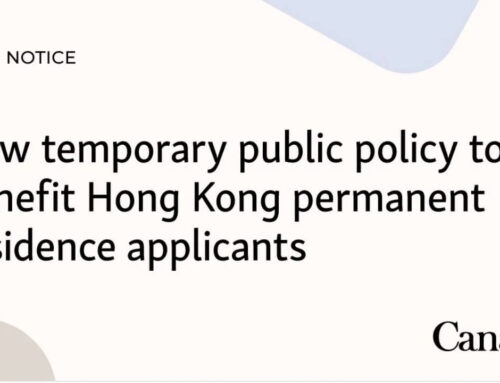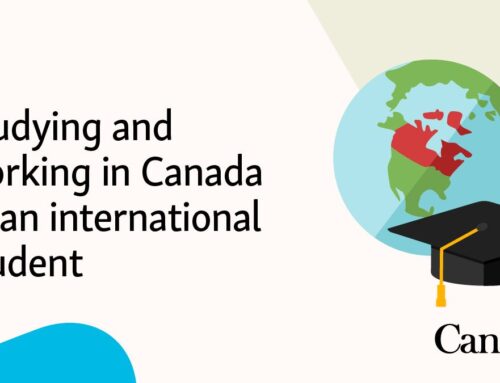Atlantic Immigration Pilot Program (AIPP) – Update – September 13, 2018 to November 2018
According to the Public Policy Forum report in November 2018, although more than 3000 job offers were made through the AIPP in 2018, approximately 1200 workers and their family members have been granted permanent residency. The backlog is largely due to the IRCC not receiving the application materials for the permanent residency process. The IRCC has made claims that they are working to speed their processing by implementation “a number of initiatives”. Since its inception in 2017, the AIPP has been more popular among Highly Skilled Workers, but minimally successful for International Graduates. It has been reported that while New Brunswick and P.E.I. seek more skilled immigrants, Nova Scotia will stick to their original target. Of the 792 allotted slots for Nova Scotia, only 592 have been filed. Nova Scotia currently receives the highest quota of allocated spots, but the other provinces are pushing forward at a much faster speed. During 2017, there was a total of 4000 new immigrants coming to Nova Scotia, with Philippines, China and India were highest origin. The numbers have not been released for 2019, but it appears that Nova Scotia will continue to have an increase in their immigrant population, largely due to the Atlantic Immigration Pilot Project. Click here for more updates on the AIPP.
Further reports were made in September 2018 that New Brunswick and P.E.I. seek more skilled immigrants, Nova Scotia will stick to their original target. Of the 792 allotted slots for Nova Scotia, only 592 have been filed. Nova Scotia currently receives the highest quota of allocated spots, but the other provinces are pushing forward at a much faster speed. During 2017, there was a total of 4000 new immigrants coming to Nova Scotia, with Philippines, China and India were highest origin. The numbers have not been released for 2019, but it appears that Nova Scotia will continue to have an increase in their immigrant population, largely due to the Atlantic Immigration Pilot Project.
Atlantic Immigration Pilot Program – Update – July 10, 2018
IRCC increases the 2018 AIPP allotment number of skilled immigrants (and family members) who can obtain permanent residence through the AIPP by 500, bringing the 2018 allotment to 2,500. The AIPP is run as a partnership between Canada’s federal government and the governments of Canada’s four Atlantic Provinces, spread across Nova Scotia, Newfoundland & Labrador, New Brunswick and Prince Edward Island
Atlantic Immigration Pilot Program – July 2017
In July 2016, it was announced that as part of The Government of Canada’s Atlantic Growth Strategy, a three-year Atlantic Immigration Pilot Program (“AIPP”) would be introduced to promote economic immigration growth in the Atlantic provinces, commencing in 2017 until 2020. The goal was to bring in 7000 new immigrants by 2020. This employer-driven program, provincial nominee program (“PNP”) facilitates employers to hire Foreign Nationals in positions where there has been a shortage of qualified local workforce. Essentially, Immigration, Refugees and Citizenship Canada (“IRCC”) partnered with the four Atlantic provinces of New Brunswick, Nova Scotia, Newfoundland and Labrador and Prince Edward Island to assist employers (businesses, not-for-profits, and the government) in these regions find qualified workers they have not found with the local market.
Each province may designate certain employers to participate (these employers must apply to become designated in the province). Once designated, employers have the ability to hire in the particular province, but they are required to meet certain requirements to obtain a designation. Labor Market Impact Assessment (“LMIA”) is not required for this program. Atlantic provinces started designating employers in January 2017. All the participating provinces, Nova Scotia, Newfoundland & Labrador, New Brunswickand Prince Edward Islandhave a published list of Designated Employers.
As an employer-driven program, once an employer locates a candidate who meets the minimum requirements, they must submit an offer of employment to the foreign national. There are basic eligibility requirements, depending on the stream chosen, including basic language proficiency, educational requirements, work experience, job offer (must be full-time and non-seasonal), and individualized settlement plan for new-coming immigrants. There are three streams available: (1) Atlantic High-Skilled Program(professional, managerial, or technical/skilled jobs and other requirements); (2) Atlantic Intermediate-Skilled Program(managerial, professional, technical/skilled which require high school and specific training); (3) Atlantic International Graduate Program(managerial, professional, technical/skilled which require a degree, diploma or other credentials from a publicly-funded institution from an Atlantic province, high school and specific training. A job offer is not required for the graduate program.
Once a candidate accepts the job, they must apply for a work permit to be able to come to Canada immediately. In order to obtain a work permit, there must be a valid offer of employment, a letter from the specific province and a commitment letter to apply for permanent residence. The AIPP allows candidates to immediately apply for permanent residence with the IRCC once the position is endorsed by the province, but this must be done within 90 days.





